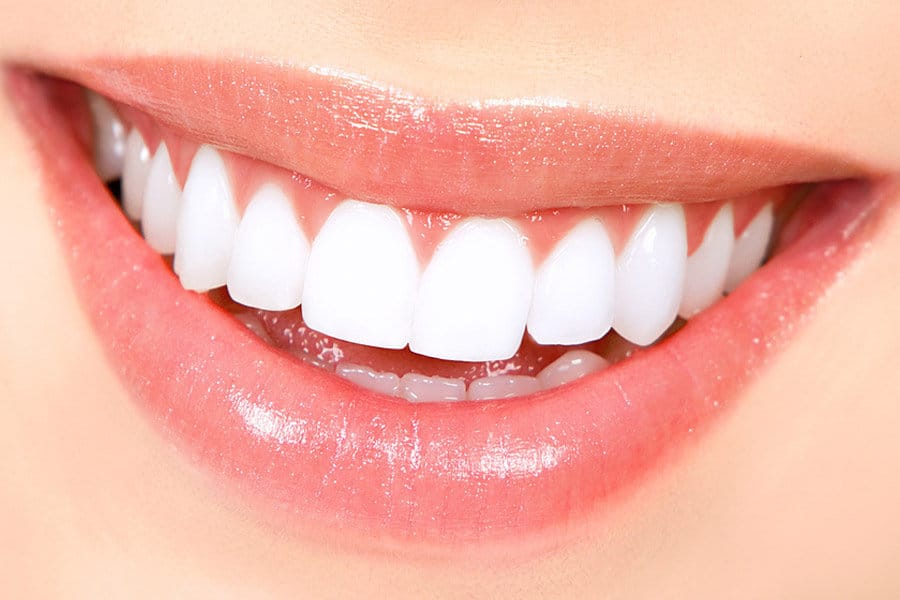Oral health is an important part of our overall health. A lot goes into caring for our teeth, both at home and in the dentist’s chair. To help keep your pearly whites healthy and shining we’ve compiled a list of five tips to care for your teeth.
Teeth Whitening Tips
- Brush with care – We recommend brushing two times a day or after each meal for 2 minutes. To make sure you get that full two minutes we recommend a brush with a built-in timer, available at most super markets and drug stores. Traditional toothbrushes and electric toothbrushes can be equally effective. The effectiveness of either depends on how you brush. As long as you brush well and get all of your teeth, both kinds of brushes will work. Electric toothbrushes can help people who have trouble moving the brush around and hitting all their teeth, such as people with motor disabilities or arthritis. One of the biggest dental problems people face when brushing their teeth, whether using a traditional toothbrush or an electric toothbrush, is brushing too hard. We recommend using a soft bristle brush that can get between the teeth and will not cause damage.
- Floss! Yes, you really need to – Floss each night before going to bed. Flossing is very important because even soft bristle brushes can’t get all the way between teeth, and between the teeth is where gum disease starts. There are several options for cleaning between your teeth, including traditional dental floss, dental picks and water flossers, among others. Be sure to ask your dentist about the best tool for you. Flossing can be a difficult part of teeth maintenance and if done incorrectly can cause damage to your gums, so also be sure to ask your dentist about proper flossing technique.
- Engage in a tooth friendly diet – Diet has a huge affect on the health of your teeth. We recommend three to four servings of calcium and vitamin D daily, especially for children. This can be achieved through dairy products, orange juice and green vegetables like spinach, among others. Avoid acidic or sugary food and drinks, such as soda, coffee, pastries and tomatoes, among others. Moderation in everything is the key to balancing a healthy diet for your teeth. Getting the proper amount of fluoride is another important component of a tooth friendly diet. Fluoride can help teeth both inside and out, but too much fluoride can cause harm. Correct fluoride levels are especially important for children. 75 percent of U.S. community water systems contain fluoride, but people who live in an area without fluoridation may want to ask their dentists about fluoride supplements.
- Schedule regular check-ups – Even if you are vigilant about cleaning your teeth, you need to have regular check-ups with a professional hygienist or dentist to check on the health of your mouth and remove calcified plaque from your teeth. Calcified plaque is sort of like hard rocks on your teeth and cannot be removed at home. Because dental health is linked to overall health, check-ups are very important. Over 42,000 people are diagnosed with oral cancer each year and early detection can make all the difference in treatment. At check-ups, dental professionals also polish teeth, removing surface stains, which helps your pearly whites stay pearly. Another important component of the dental check-up is X-rays. Dentists X-ray your teeth to check for hidden decay, trauma to the jaw, problems with wisdom teeth, gum disease, cysts and bone loss. This makes X-rays a highly valuable diagnostic tool.
- Follow your dentist’s recommendations – Having regular dental check-ups can help with at-home care because dental professionals can inform you of problem areas and give personalized recommendations on how you should be caring for your teeth. Everyone’s mouth and dental care needs are unique and having a professional’s recommendation on what product or brushing and flossing technique to employ can make a huge difference in your oral health, so listen carefully at each check-up.
Bonus Tip: The low-down on mouthwash – If you want a mouthwash that is for more than cosmetic use, be sure to buy a bacteria-fighting rinse. Bacteria-fighting mouthwashes can help prevent gum disease. Products with fluoride can help prevent tooth decay. No mouthwash is a replacement for floss. Be sure to get a mouthwash that is not alcohol based for children under six.
Having good oral hygiene habits keep your teeth in top-notch health. Teeth in top-notch health are whiter and brighter and keep you looking younger. Follow these tips and you will have a healthier brighter smile.

